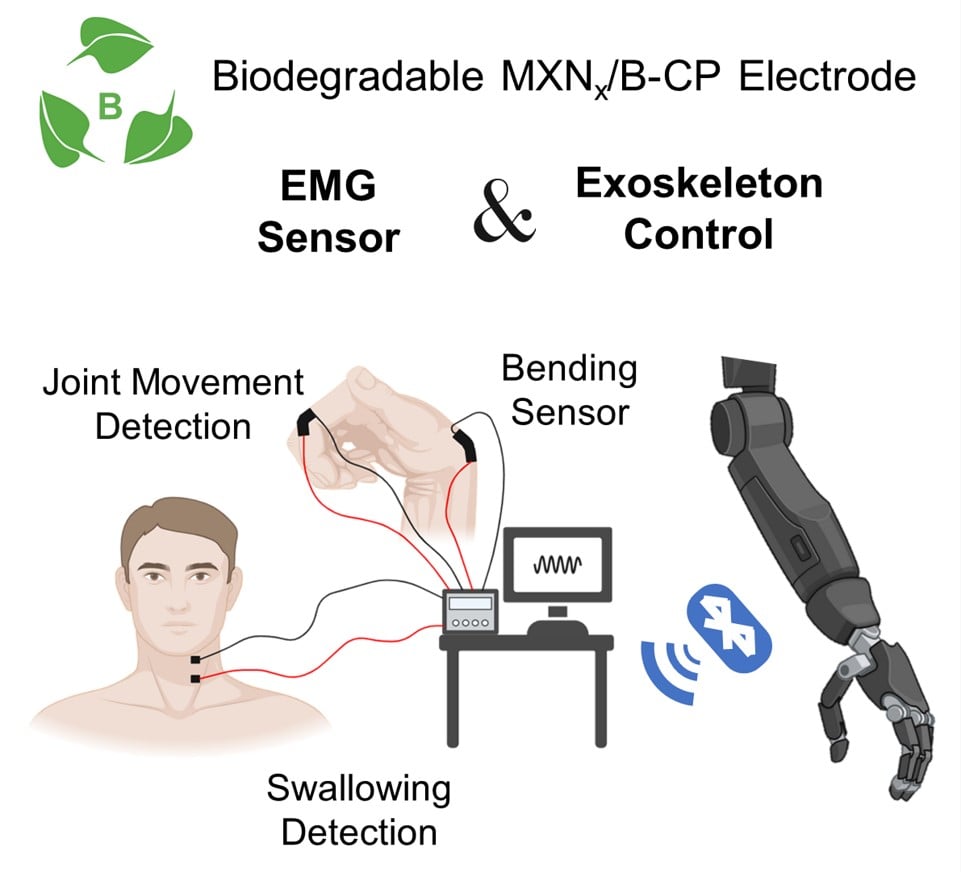Researchers at the National Taiwan University have developed Biologically degradable paper electrodes This combines sustainability with high performance and offers a solution for the growing challenge of electronic waste. The study is in published in Advanced science.
These electrodes, which were made by embedding MXEN nano leaves in Cellulose nanofibers derived from bamboo, are light, flexible and inexpensive to produce. A breathable EcoFlex coating offers waterproof protection and durability with repeated use.
The strong bond between Mxen and cellulose ensures structural stability and efficient electron transport, so that the electrodes can provide sensitive reactions to stretching and movement.
Tests showed that they can be used in Portable sensors, monitoring muscle activity and exoskeleton controlEverything with excellent stability and low noise.
”This innovation paves the way for Green, scalable electronics Developed for portable and assistive technologies of the next generation, ”said Prof. Tzu-en Lin, the corresponding author of the study.
Prof. Tzu-en Lin's email address: [email protected]
The laboratory of Prof. Lin: https://sites.google.com/g.ntu.edu.tw/tel/Research
The research topics include 1. Sensors based on microelectrodes, 2. Sensors based on nano membranes, 3. Sensors based on aerogels, 4. Sensors based on semiconductors, 5. EMG sensor development, 6. Scan probing system based on soft microelectrlode.
